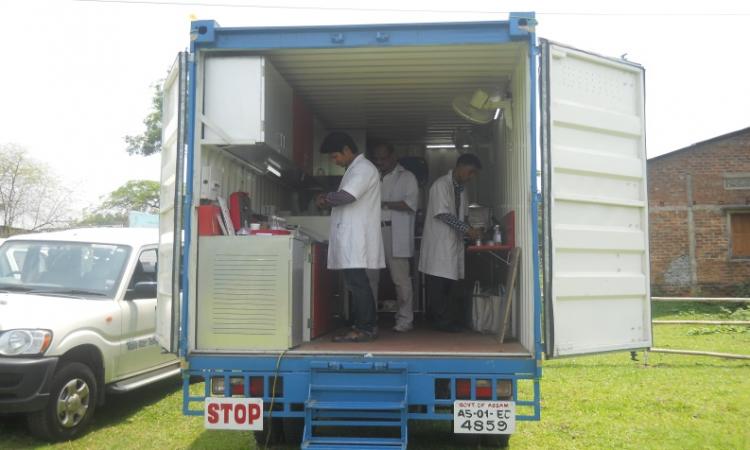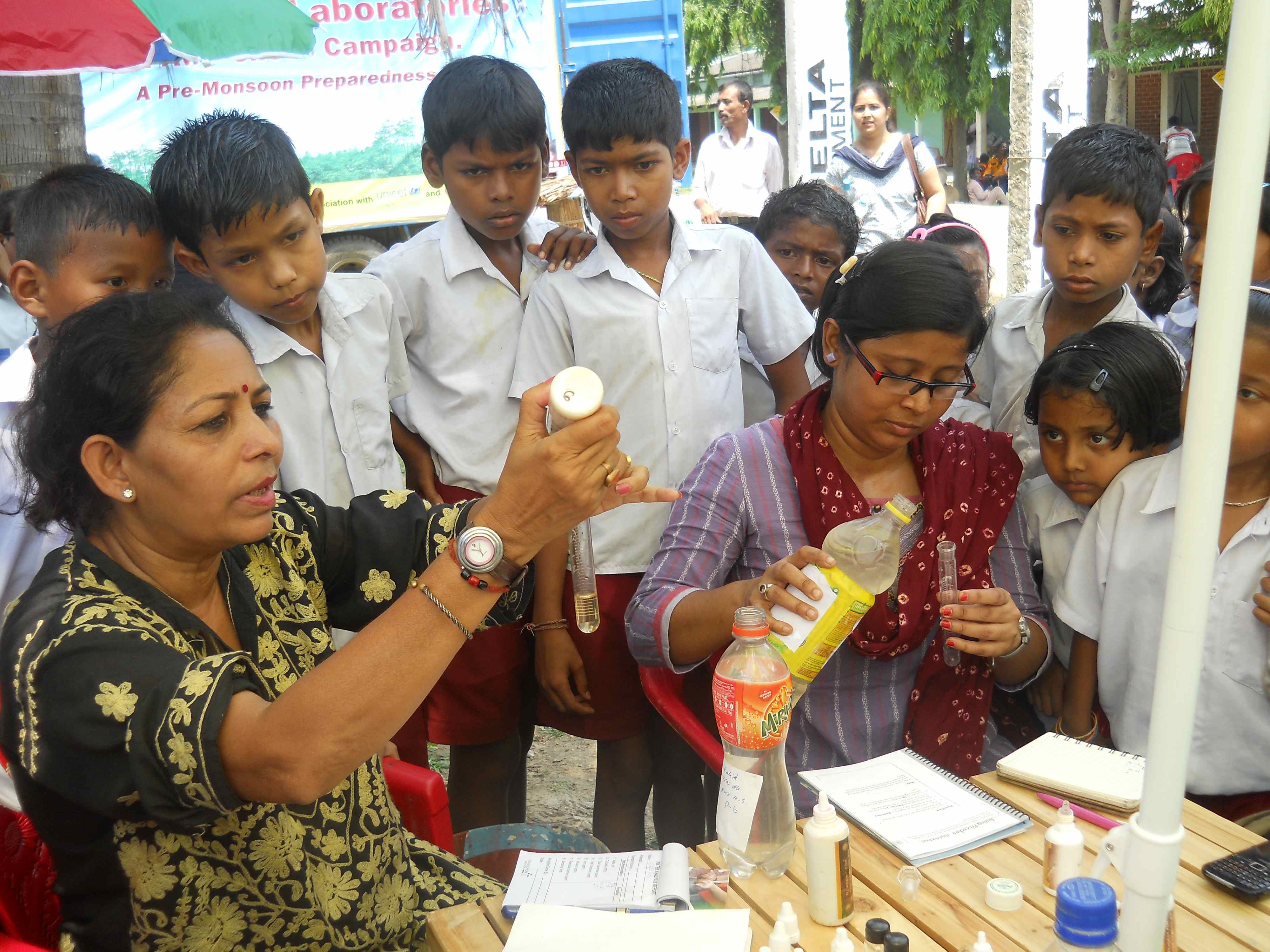
The monsoon brings with it water-borne diseases like diarrhoea, cholera and dysentery, which cause suffering and death. Although this is a recurring theme annually, not enough measures are taken to prevent this. The state of Assam decided to take some action in May of this year. The Water Quality Task Force put together a campaign to prepare communities to manage their water sources along with taking precautionary measures to curb widespread water-borne disease incidence during the monsoon. This pilot program, which was implemented in three districts viz. Kamrup, Morigaon and Nagaon, used mobile testing vans for onsite analysis of drinking water sources in addition to creating awareness programs through information, education and communication.
The Approach
Labs mounted on trucks were sent out to remote areas of the three selected districts. Water sources including tube wells and ring wells were tested for six water quality parameters: pH, turbidity, hardness, residual chloride and arsenic. The results of these tests along with suggested remedial measures like chlorination and disinfection using bleaching powder were circulated to the communities. Affected areas were advised to get further detailed tests done. 270 water samples were tested over five days of which 180 tested positive for bacteriological analysis.
The information, education and communication approach roped in local theatre troops who performed Duhlia Jatra, a traditional form of drama, to generate awareness on water, sanitation and health. Posters with messages on water and sanitation, stickers on hand washing and using soap were given to school children telling them how to prevent water borne diseases such as acute diarrheal disease.
Lessons learnt

While the communities were concerned about water quality and wanted to get their drinking water sources tested, there was a general lack of awareness about where they could get these tests done. This was found in all three districts. So for sustaining such initiatives, focused information, education and communication activities are required at regular intervals to reinforce the link between water sanitation and hygiene.
The pilot program now needs to be rolled out in the remaining districts. The campaign should be prioritised specially in the tea garden areas in Dibrugarh, Tinsukia, Sibsagar, Golaghat and Jorhat districts, which have had many cases of recurrent water borne disease incidence in the past.
Lastly, to sustain this initiative, the data generated based on the analysis of water samples must be updated on a system that makes it easy for the public to read and understand the data and information and take the required action.